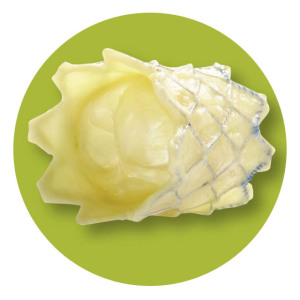by
Brendon Nafziger, DOTmed News Associate Editor | November 03, 2009

Medtronic's Melody, designed
to treat children born with
a heat defect, could be
the first transcatheter valve
granted clearance by the FDA
Medtronic's transcatheter pulmonary valve, designed to spare sufferers of a congenital heart defect repeated open-heart surgeries, appears to be on target for FDA clearance next year, which would make it the first such valve marketed in the U.S.
As reported in last week's Journal of the American College of Cardiology, patients showed good health outcomes six months after receiving the Melody transcatheter pulmonary valve, one of three transcatheter valves currently in the pipeline at the Minneapolis, Minn.-based company.
The Melody transcatheter valve is designed for children born with a defective pulmonary valve, part of the heart which connects to the lung, where blood gets enriched by oxygen before the heart muscle pushes it throughout the body. Unlike traditional valve replacements, which need to be inserted during open-heart surgery, Melody is threaded through the cardiovascular system in a less invasive catheter operation.



Ad Statistics
Times Displayed: 316
Times Visited: 2 Keep biomedical devices ready to go, so care teams can be ready to care for patients. GE HealthCare’s ReadySee™ helps overcome frustrations due to lack of network and device visibility, manual troubleshooting, and downtime.
The results of this trial follow a ruling last July by an FDA advisory panel that unanimously recommended Melody for approval. Joe McGrath, a spokesman for Medtronic, tells DOTmed News he expects Melody to receive full approval by 2010.
Currently, a little over 160 patients, only those registered in clinical trials or granted humanitarian use, have had the device implanted in the U.S. But, Melody is already cleared in Europe, as is the competing SAPIEN valve, a transcatheter device designed to treat those with a dangerous narrowing of the aortic valve, and developed by Edwards Lifesciences.
"What's the reception been in Europe? Very, very good," McGrath says. "You must realize that these patients historically have been faced with a lifetime of open-heart surgeries to replace the pulmonary valve. This is a big breakthrough for physicians and relief for patients, and enables them to defer or postpone the next open-heart surgery, and still get the dysfunctional pulmonary valve replaced."
So far, about 1,000 people have undergone Melody implantation in Europe, according to Medtronic.
McGrath says that as interventional pediatric cardiologists, the doctors expected to apply the device, have gotten more comfortable with the equipment, outcomes have improved, which is possibly why procedural success rates reported by the most recent study reached 97 percent.
"Early experience in Europe was great, but not as good as what we're seeing now in the U.S.," he says.
Still, there has been at least one minor worry coming from Europe. In a few cases, the stents, which house the valve, have fractured, presumably from repetitive stress. However, the few stents which cracked didn't migrate or break apart, and there has thus far been no risk to patients.
"The good news, it hasn't been an issue as far as safety goes," McGrath says.

